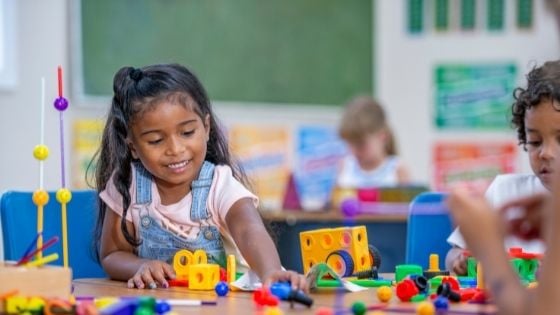Back when I was a new mother with a cute little baby, I was happy — but also, sometimes, just a little bit bored. And like many people, when I’m bored I tend to start daydreaming about an imaginary future.
In my make-believe future with my toddler-to-be, I thought about all the educational, life-affirming things we would do together. I pictured myself leading her on contemplative nature hikes through the Eloise Butler Wildflower Garden and Bird Sanctuary. I visualized us snuggled up on the couch as I read her the entire back catalog of William Steig. (Excellent Steig offerings include Amos and Boris, Sylvester and the Magic Pebble and so many more.)
I imagined traveling with her to far-away lands to soak up foreign languages and culture.
This is all well and good, of course. But let’s be honest — many of these starry-eyed fantasies about my toddler’s edification probably had a little something to do with my own neuroses. When you’ve destroyed your body, sidelined your career and alienated most of your friends, fantasies like these can give the toddler parenting experience a little more meaning.
What is educated?
But we must be careful. How many of us have met a “well-rounded” child — a kid who, for example, attends Mandarin-immersion daycare, takes hip-hop dance classes and spends his idle time at the science museum — who was, shall we say, lacking in some of the social graces?
Because after all, “lacking in social graces” is an important entry in the definition of what it means to be a toddler. Toddlers are, by nature, self-centered and brutally honest. These qualities can make them cruel. But they don’t know any better! It’s our job to teach them.
Now that I’ve made it through the toddler stage with two separate children, I’ve simplified my approach to the education of toddlers. I’ve broken it down into two guiding principles:
- Stay safe(ish).
- Let them figure it out.
Let’s dig into the principles a bit more:
Stay safe(ish).
Initially, I’d planned to urge all readers to teach their kids how to swim. Unfortunately, all my assumptions about the benefits of swimming lessons were proven woefully wrong when I read an article by Melinda Wenner Moyer titled Swim Lessons Won’t Keep Your Toddler from Drowning. Say what?
“Swimming programs for youngsters under 4 shouldn’t really be considered a drowning-prevention strategy,” said Barbara Morrongiello, a professor at the University of Guelph in Canada who studies parent safety practices and drowning prevention.
In short, the article argues (persuasively) that kids don’t learn the kind of skills they need to survive a near-drowning in your average swimming class.
Most parents don’t realize this, however. And the idea that their kids “know how to swim” can instill a false confidence in parents and children alike, thereby creating a greater risk for drowning.
The only effective way to prevent drowning? Watch your kids around water. All the time, like a hawk. This is one area where you want to helicopter.
Other valid areas of overprotection — anything car related.
Many other areas? Just make sure they’re safe(ish). In other words, give them room to explore —and maybe even mess up/get hurt a little — but always be available to provide help and guidance.
Let them figure it out.
It’s my opinion that we’re doing our children a favor every time we let them work through challenges. You know when your toddler gets into it with another kid over a toy or whose “turn” it is to wave the hockey stick around or whatever?
I’ve noticed that parents are always leaping in to intervene: “Mason, honey, no! We share, remember? Give Lena a turn.”
In these situations, I can usually be found on the sidelines, studiously ignoring the argument. If it’s getting violent or my kid is being a serious jerk, I’ll intervene. But otherwise? I let them figure it out. It can take nerves of steel to keep your mouth shut — especially when your kid’s behavior might be reflecting poorly on you — but I think it’s a smart move in the long run.
Look ahead to that imaginary future again. Now your toddler is all grown up, going off to college — and she’s forgotten her phone charger.
Who do you want to be? The parent who is expected to drive the charger at her earliest convenience all the way to St. Cloud? Or the parent who never hears a word about it, because your child has learned to figure it out? You decide.
Shannon Keough lives in St. Paul with her husband and two children. Send questions or comments to [email protected].


















